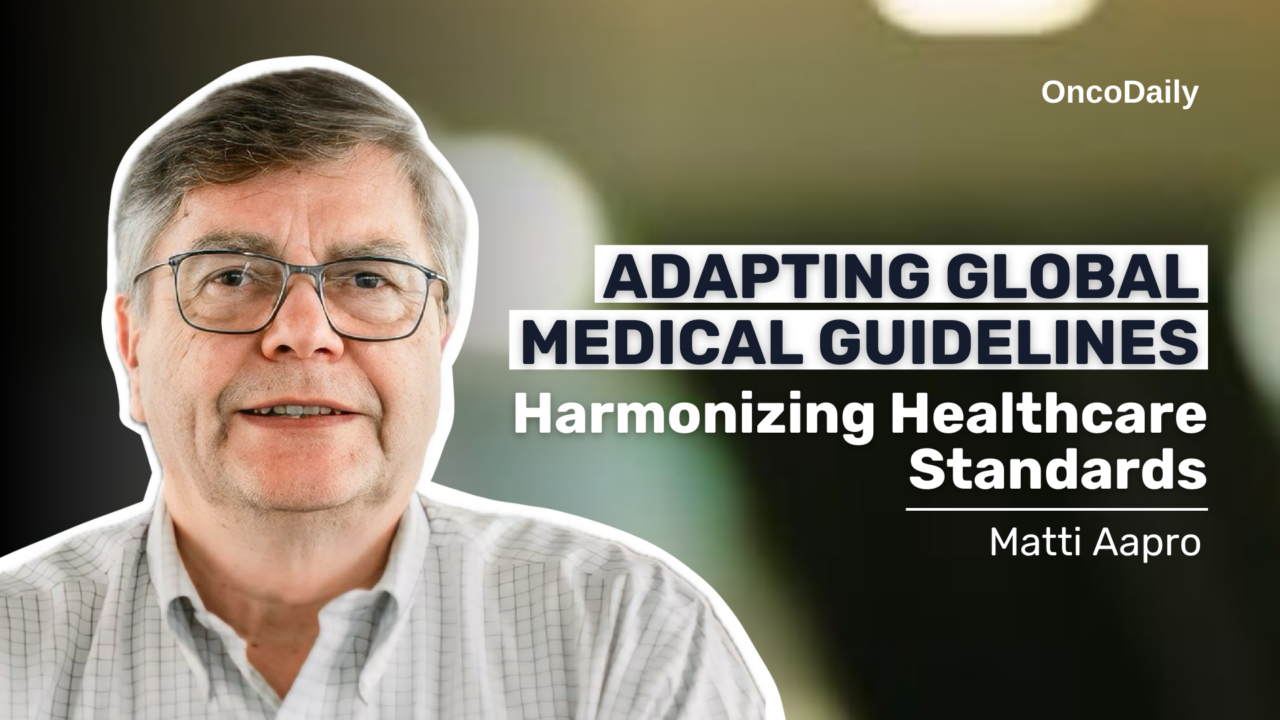In this episode of OncoDaily Interviews, Dr. Matti Aapro, hosted by Dr. Martin Harutyunyan, shares his insights from the MASCC meeting in Lille, discussing the need to adapt anti-emetic guidelines to fit the realities of countries with limited drug availability. He advocates for global harmonization of medical guidelines and suggests collaboration with the WHO to create unified, evidence-based standards.
Dr. Matti Aapro is a renowned medical oncologist and an important figure in cancer care and policy advocacy. He has contributed to shaping global oncology standards through his roles as President of SPCC, Board member of UICC, and President of All.Can. He is also a board member at the Genolier Cancer Center in Switzerland. Dr. Aapro’s impressive career includes being the founding chair of the Medical and Radiation Therapy Department at the European Institute of Oncology in Milan.
With over 350 published articles, his expertise spans new drug development, breast cancer, geriatric oncology, and supportive care. He received recognition through numerous awards, including the ASCO B.J. Kennedy Prize and the MASCC Distinguished Services Award. Dr. Aapro remains an influential voice in oncology as an Executive Board member of the European School of Oncology and through his involvement with SIOG, MASCC, AFSOS, JASCC, EORTC, and ESMO.
Dr. Martin Harutyunyan is a medical oncologist and palliative care specialist who currently serves as the Head of the Palliative Medicine Service at Yeolyan Hematology and Oncology Center in Yerevan, Armenia. He has been working as a medical oncologist at the same center since October 2021.
Dr. Harutyunyan has made significant contributions to research and patient care throughout his career. He has worked as a clinical researcher at the “City of Smile” Charitable Foundation and as a medical coordinator at the Union of Armenian Doctors. Dr. Harutyunyan’s played a key role in the launch of a Palliative Medicine Service at Yeolyan Hematology and Oncology Center.
I am Matti Aapro, I’m at the MASCC meeting in Lille, and one comment that I would like to make about discussions of this meeting. As you all know, MASCC has put forward some very important guidelines in a few areas. One of them, which is very recent, is in anti-hematics, and we will have this afternoon the final session on something very important, which is adapting the guidelines to the realities of many countries from the world where not every single drug is available, and we have to give some counseling also in that area.
This brings me to another point, which is why don’t we have that for all guidelines, because guidelines that are put forward by fantastic societies like ASCO, ESMO, are usually done in the way of what is available in state-of-the-art situations. Regrettably, even in Europe, even in some situations in North America, not everything is yet available, so we always have to think of, if it is not available, what can be done, what is the best choice. I believe that this is an effort that all should do.
I’m aware that some societies are doing it now, but this should be an effort that we do in all areas. Another one is that some colleagues in some countries far away from North America and Europe say, why do you have guidelines that are not similar? They should be evidence-based.
Why are they not saying the same thing? Indeed, there could be an effort maybe, and putting it out there, organized thanks to the support of the WHO, the World Health Organization, to put together the guidelines and say what parts are essential and what parts should we adjust so that we say the same thing at the end, because they are evidence-based. Or then we show that there are different opinions, as there could be, because sometimes the evidence is not strong enough and you can have different interpretations.
So these are some of my comments at the mass meeting in Lille, and I hope that you will all also be joining the mass meeting in Seattle next year. Thank you.


